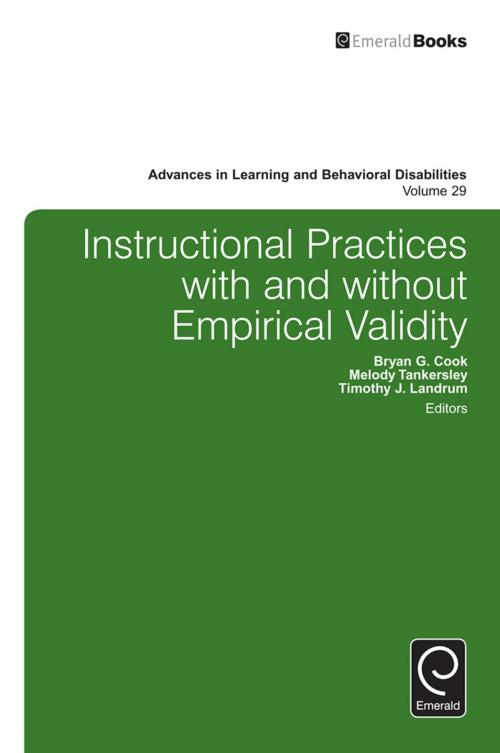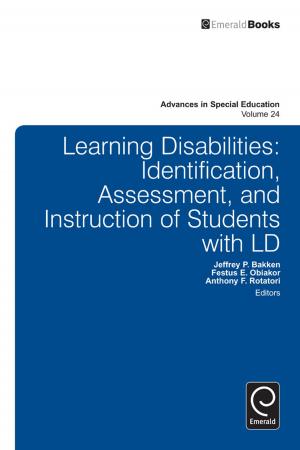Instructional Practices with and without Empirical Validity
Nonfiction, Reference & Language, Education & Teaching, Special Education, Socially Handicapped, Learning Disabled| Author: | ISBN: | 9781786351258 | |
| Publisher: | Emerald Group Publishing Limited | Publication: | July 6, 2016 |
| Imprint: | Emerald Group Publishing Limited | Language: | English |
| Author: | |
| ISBN: | 9781786351258 |
| Publisher: | Emerald Group Publishing Limited |
| Publication: | July 6, 2016 |
| Imprint: | Emerald Group Publishing Limited |
| Language: | English |
It is important that stakeholders are aware of practices supported as effective for students with learning and behavioral disabilities in order to provide instruction that results in improved learner outcomes. Perhaps equally important, stakeholders should also know which practices have been shown by research to be ineffective (e.g., have no, small, or inconsistent effects on learner outcomes). Special education has a long history of using practices that, though appealing in some ways, have little or no positive impact on learner outcomes. In order to bridge the gap between research and practice, educators must be aware of which practices work (and prioritize their use) and which do not (and avoid their use). In this volume, each chapter describes two practices one supported as effective by research and one shown by research to be ineffective in critical areas of education for students with learning and behavioral disabilities. Chapter authors will provide readers guidance in how to do this for each effective practices and provide concrete reasons to not do this for each ineffective practice.
It is important that stakeholders are aware of practices supported as effective for students with learning and behavioral disabilities in order to provide instruction that results in improved learner outcomes. Perhaps equally important, stakeholders should also know which practices have been shown by research to be ineffective (e.g., have no, small, or inconsistent effects on learner outcomes). Special education has a long history of using practices that, though appealing in some ways, have little or no positive impact on learner outcomes. In order to bridge the gap between research and practice, educators must be aware of which practices work (and prioritize their use) and which do not (and avoid their use). In this volume, each chapter describes two practices one supported as effective by research and one shown by research to be ineffective in critical areas of education for students with learning and behavioral disabilities. Chapter authors will provide readers guidance in how to do this for each effective practices and provide concrete reasons to not do this for each ineffective practice.















